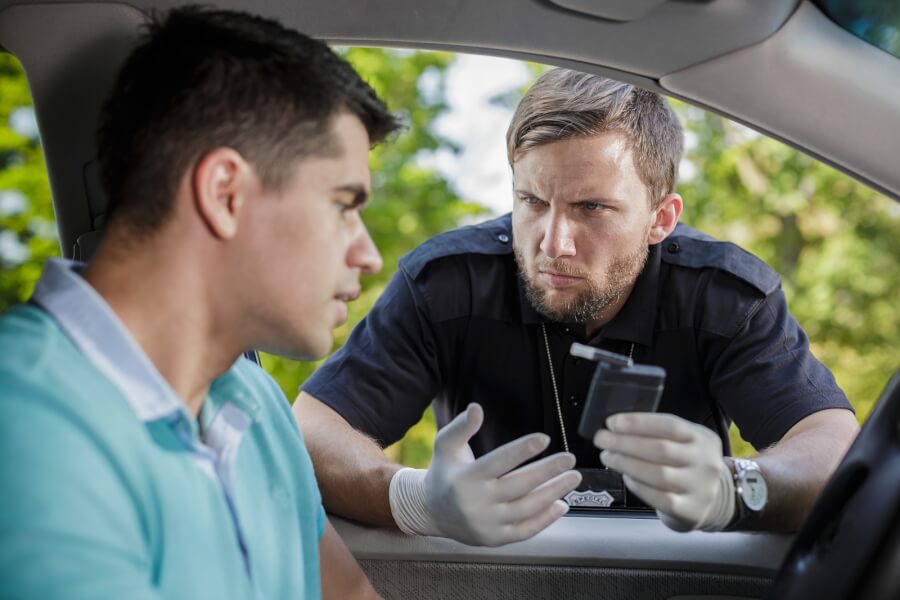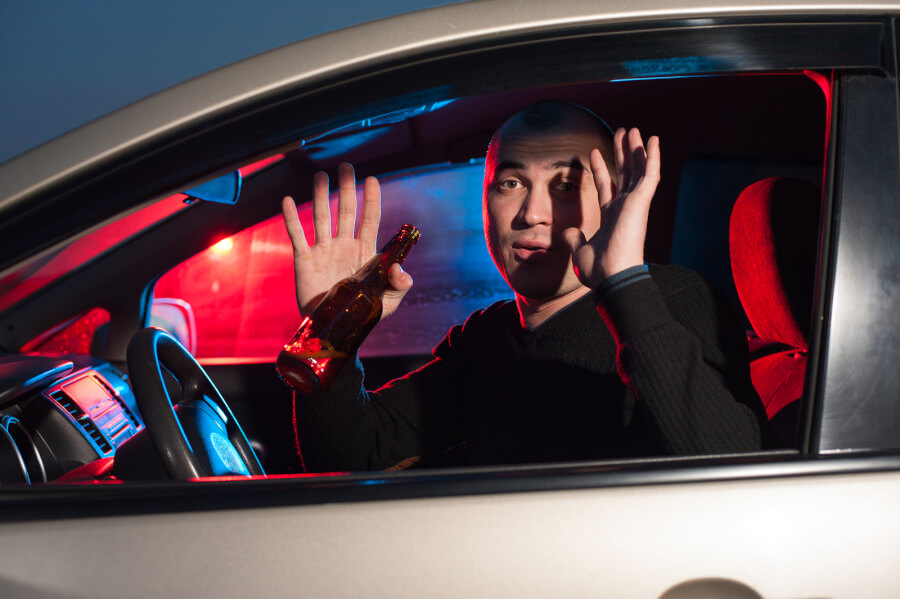 According to the law, although this isn’t always the case in terms of practice, law enforcement in North Carolina needs to have reasonable suspicion in order to pull your vehicle over. Of course, if the police officer catches you speeding or breaking a traffic law, then the officer has the right to pull you over. At the same time, if the police officer believes that you’ve been drinking or doing drugs, and pulls you over to conduct a sobriety test, then that police officer must have a reasonable suspicion that holds up in court.
According to the law, although this isn’t always the case in terms of practice, law enforcement in North Carolina needs to have reasonable suspicion in order to pull your vehicle over. Of course, if the police officer catches you speeding or breaking a traffic law, then the officer has the right to pull you over. At the same time, if the police officer believes that you’ve been drinking or doing drugs, and pulls you over to conduct a sobriety test, then that police officer must have a reasonable suspicion that holds up in court.
As a Raleigh DWI lawyer and former Wake County Assistant District Attorney, we at the Law Office of Dewey P. Brinkley have found that, in some cases, the arresting law enforcement officer didn’t have reasonable suspicion to pull the car over in the first place. The 4th Amendment protects against unlawful searches and seizures, and if law enforcement violated your rights, you may be able to achieve a favorable result in North Carolina criminal courts. To speak with attorney Brinkley over a free consultation regarding your case, call our Raleigh DWI defense law firm today at (919) 832-0307.
What is Reasonable Suspicion in Traffic Stops
If you weren’t committing any other traffic violations or other law violations when the police pulled you over, then the law enforcement needs to have an articulable, reasonable suspicion that you may have been drinking (or breaking the law in another manner).
The landmark decision regarding reasonable suspicion comes from the United States Supreme Court decision of Terry v. Ohio, 392 U.S. 1 (1968). In this case, the court ruled that the 4th Amendment gives citizens the right to be free from being stopped by police officers unless the police have a reasonable suspicion that criminal activity is taking place. Additionally, the law states that the reasonable suspicion has to be more than a mere hunch.
The 4th Amendment states that:
The right of the people to be secure in their persons, houses, papers, and effects, against unreasonable searches and seizures, shall not be violated, and no warrants shall issue, but upon probable cause, supported by oath or affirmation, and particularly describing the place to be searched, and the persons or things to be seized.
Stops that involve reasonable, articulable suspicion are known as Terry Stops.
What Constitutes Reasonable Suspicion
In addition to understand reasonable suspicion, it’s also important to consider what constitutes reasonable suspicion. The North Carolina Court of Appeals, citing the case of State v. Wilson, said that “[A] traffic stop based on an officer’s [reasonable] suspicion that a traffic violation is being committed, but which can only be verified by stopping the vehicle, such as drunk driving or driving with a revoked license, is classified as an investigatory stop, also known as a Terry Stop. Such an investigatory-type stop is justified if the totality of circumstances affords an officer reasonable grounds to believe that criminal activity may be afoot.”
Given these definitions, law enforcement does have a lot of leeway when it comes to what designates reasonable suspicion. For instance, reasonable suspicion can be, technically, established by any of the following observations:
- Straddling the center line
- Making an illegal turn
- Drifting from one lane to another
- Nearly hitting other cars or objects
- Extremely slow or erratic driving
- Frequent braking
- Stopping in the middle of the road for no apparent reason
Although this is far from a complete list, it’s also very important to remember that every case is unique, and the establishment of reasonable suspicion can be on a case-by-case basis. Additionally, police are not permitted to pull drivers over based on factors such as time and location. For example, police cannot pull you over at 2:00 am near a popular bar, unless, of course, they have reasonable suspicion based on your driving behavior.
Defenses Against Reasonable Suspicion
Always remember that just because a law enforcement officer feels he/she has reasonable suspicion to pull you over, it doesn’t mean that the law enforcement truly has reasonable suspicion. If you believe that the officer didn’t have reasonable suspicion, then you and your attorney can argue for a motion to dismiss the charges, whereas your entire case may be dismissed.
Additionally, if the officer pulled you over for speeding, the officer cannot immediately launch an investigation regarding drinking and/or drug usage, and unless the officer has probable cause, then he/she cannot search your vehicle for alcohol.
Get a Leading DWI Defense With Raleigh Lawyer Dewey Brinkley
If you believe that your DWI arrest in North Carolina resulted from a traffic stop where the officer didn’t have probable cause to pull you over, then, with the help of an experienced Raleigh DWI and criminal defense lawyer, you might be able to fight your charges in court.
For a free consultation and to speak with attorney Dewey Brinkley regarding your case, call our Raleigh criminal defense law office today at (919) 832-0307.

